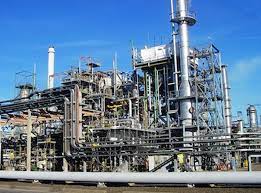The report that the 210,000-barrel-per-day Port-Harcourt Refinery may finally commence operations by the end of July after several postponements, Nigerian newspapers reported on Tuesday.
The Punch revealed that the 210,000-barrel-per-day Port-Harcourt refinery may finally commence operations by the end of July after several postponements.
The new date was disclosed on Monday by the National Public Relations Officer, Independent Marketers Association of Nigeria, Chief Ukadike Chinedu.
He stated that the development would stimulate economic activities, reduce the price of petroleum products and ensure adequate supply.
Last year in December, the Minister of State for Petroleum Resources, Heineken Lokpobiri, announced the mechanical completion and flare start-off of the biggest crude refinery in Port Harcourt.
The refineries comprise two units, with the old plant having a refined capacity of 60,000 barrels per day and the new plant has 150,000 BPD.
The refinery was shut down in March 2019 for the first phase of repair works after the government secured the service of a technical adviser of Itay’s Maire Tecnimont to handle the reviews of the refinery complex, with oil major Eni appointed technical adviser.
On March 15, 2024, it was reported that the Group Chief Executive Officer of NNPC Limited, Mele Kyari, stated that the Port Harcourt refinery would commence operations in about two weeks.
The newspaper says that the National Agency for Food and Drug Administration and Control has partnered with the Nigeria Export Promotion Council and other stakeholders to tackle the issue of the rejection of exports overseas.
Speaking on Monday at a national workshop for stakeholders in the export of NAFDAC-regulated products, in Lagos, the Director-General of NAFDAC, Prof. Mojisola Adeyeye, explained that NAFDAC partnered with Nigeria Export Promotion Council, the Nigeria Customs Service, the Nigeria Agricultural Quarantine Services, CBN Trade & Exchange Department. housing the Nigerian Export Supervision Scheme, towards achieving that aim.
The workshop was titled ‘Achieving Sustainable Export of Regulated Products: The Imperatives’.
She revealed that the previous and perennial state of international rejection of Nigerian exports was attributed to ignorance of the regulatory requirements from the importing country and sourcing of products from the open market without consciousness of intrinsic quality.
She blamed those who sabotaged national interest on the altar of selfish and temporal gain, deliberate and myopic unprofessional practices, such as adulteration of goods and commodities for weight gain, and others.
GIK/as/APA


